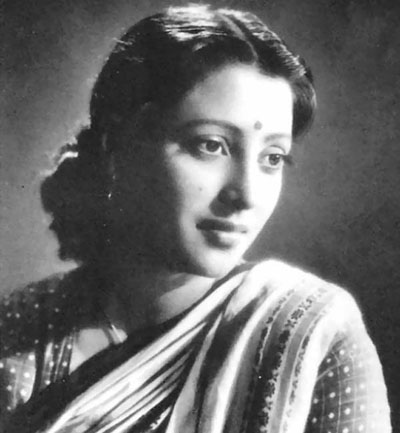There’s a new translation of Franz Kafka‘s The Metamorphosis out. It’s by Susan Bernofsky and it comes with an introduction by David Cronenberg, recently posted by the Paris Review. “I woke up one morning recently to discover that I was a seventy-year-old man,” he begins, and that, of course, is different from waking up to discover you’ve become an insect—but how different, he asks. He notes that in The Fly (1986), what was happening to Seth Brundle was that “in an artificially accelerated manner, he was aging. He was a consciousness that was aware that it was a body that was mortal, and with acute awareness and humor participated in that inevitable transformation that all of us face, if only we live long enough.”
In the wake of Manohla Dargis‘s and Tim Wu‘s opposing arguments regarding the growing number of films being released theatrically, the New Yorker‘s Richard Brody considers the evolving role of the film critic. “Maybe the readers of mainstream publications aren’t keeping up with the best of online film criticism, but the critics in mainstream publications are certainly doing so. Their influence may often be subterranean, but it’s also often strong and crucial.”
“2014 brings an important anniversary,” writes Ania Malinowska, “the 50th birthday of Sontag’s seminal ‘Notes on Camp‘ and its circulation in cultural criticism.” Hence her blog, 100 Camp Movies in 100 Days. So far, there’s been a particular emphasis on Russ Meyer, the subject of a special guest post from Patrick Smith.
“What Is Cinema?” asks Zach Campbell. And at the New Inquiry, Evan Calder Williams has posted his thoughts on “two related projects, one on sabotage, one on what I’m talking about as ‘shard cinema.'”
From Sasha Stone: “The other night I had the pleasure of seeing Martin Scorsese’s masterpiece, The Wolf of Wall Street, for the sixth time. Afterwards, Paul Thomas Anderson, assistant director Adam Somner, and Martin Scorsese sat a few feet away from me for a chat. I got as much video as I could. The first one has a freeze frame as it was blurry. But the video kicks in around the 4 minute mark. The other two are working fine.”
Among the latest pieces from the archive that Jonathan Rosenbaum‘s posted lately is a lengthy 1998 consideration of Samuel Fuller as a writer. Another is a review of Eric Lax’s biography of Woody Allen that appeared in 1991, the year before all hell’d break loose in the lives of the filmmaker and his family. “Did Woody Allen Molest His Adopted Daughter 22 Years Ago?” reads a Slate headline; Jessica Winter stacks up the evidence both against and in favor of Allen.
Meryl Streep scored her 18th Oscar nomination the other day, extending her lead as the record-holder for any actor. Karina Longworth has a new book out, Meryl Streep: Anatomy of an Actor, and Vanity Fair runs an excerpt and asks Karina a few questions.
At Flavorwire, Alison Nastasi has snipped some of the best bits from Bill Murray’s recent Reddit AMA.
“The first, hotly-anticipated issue of gorse—Susan Tomaselli and David Gavan’s twice-yearly print journal—is out this month, notes Andrew Gallix at 3:AM. And it features Richard Kovitch‘s piece on Nicolas Roeg.
“You don’t have to be a Bavaiste to be stunned by the epochal, paraphiliac Gothic wonder The Whip and the Body (1963),” writes Michael Atkinson at Sundance Now before throwing down the gauntlet: “…which is not something you can say about the majority of Mario Bava’s cluttered, messy, budget-compromised filmography…. Bava, like Jean Rollin and so many other phantoms from the psychotronic margins, is best seen as a manic, grungy eccentric who, while catering to the sensationalist slaverings of drive-in and grindhouse ticket-buyers, became adept at filling his frame with stylized nonsense and, most vitally, had access to subversive metaphoric ideas mainstream cinema wouldn’t ordinarily touch. That’s where The Whip and the Body comes in: it’s Bava’s L’Age d’Or, his Vertigo.”
“Premiered 85 years to the day after the event it commemorates, the film Zulu is 50 years’ old this week,” writes Sheldon Hall in the Independent. “On its initial release, in 1964, it was one of the biggest box-office hits of all time in the home market. For the next 12 years it remained in constant cinema circulation before making its first appearance on television. It has since become a Bank holiday television perennial, and remains beloved by the British public. But the story behind the film’s making is as unusual as the one that it tells.”
“Well, after playing dozens of villains in grade-B mystery thrillers, it was only a short step down to playing villains in grade-B horror films.” Jim Knipfel surveys the career of George Zucco. Also at the Chiseler: Phoebe Green on pre-Code Hollywood star Phillips Holmes.
Anna Weinstein profiles Caroline Link for Film International.
IN OTHER NEWS
“Emails disclosed to the New York Times have revealed allegations of misconduct by a judge in the 1977 trial of film director Roman Polanski, when he was accused of the statutory rape of 13-year-old Samantha Gailey,” reports Ben Beaumont-Thomas for the Guardian. “Larry P. Fidlar, currently a judge on the Los Angeles County Superior Court, said that if Polanski were to return to the States for a hearing, it could well be ruled in his favor thanks to the misconduct of Laurence A. Rittenband, the judge in the original case.” Vadim Rizov has more at the Dissolve.
Last year, the Berlinale launched a special series, NATIVe – A Journey into Indigenous Cinema, and this year, it’ll feature two films, Marco Bechis’s BirdWatchers – La terra degli uomini rossi (2008) and Geoff Murphy’s UTU Redux (1983/2013), as well as “storytelling slams” and, of course, a panel discussion.
Nicholas Rombes’s 10/40/70: Constraint as Liberation in the Era of Digital Film Theory comes out in March from Zero Books. At berfrois, he invites us to take part in a related project, The 70s: “It is our responsibility, more than ever before, to search for the mystery, the illusion in film.”
LISTS
In a spectacularly designed feature, “Two–Thousand Thirteen In Review,” contributors to Not Coming to a Theater Near You look back on their personal highlights.
Richard T. Jameson and Kathleen Murphy have taken their annual “Moments out of Time” feature, which they’ve been writing since 1971, to Cinephiled.
The eight critics from around the world who write for the Festivalists each have a few words about the 2013 films that were underrated, overrated, misunderstood, groundbreaking… and so on.
Joe Bowman‘s countdown is complete. His #1: Stranger by the Lake. As it happens, Nicolas Rapold has just interviewed Alain Guiraudie for Film Comment.
Oggs Cruz looks back on the year in Philippine cinema and finds “so many films to rave about, all different from each other in terms of style, theme and intention.” And he’s got a top 20. #1: Lav Diaz‘s Norte, the End of History.
Lisa Rosman‘s #1: Spike Jonze’s Her.
AWARDS
The Visual Effects Society has announced the nominees for the 12th Annual VES Awards, and the Motion Picture Sound Editors have announced their nominees for the 61st MPSE Golden Reel Awards in the feature film categories.
The Broadcast Film Critics Association has presented its 19th Annual Critics’ Choice Movie Awards. 12 Years a Slave won Best Picture but Gravity won more awards—seven—than any other film.
OBITS
“Iconic Bengali actress Suchitra Sen, often described as India’s Greta Garbo after she quit acting at the height of her career to lead a hermit-like existence,” has died, aged 82, reports the Telegraph. “While best known for her work in eastern India, Sen also made her mark in Hindi-language Bollywood movies such as Devdas and Aandhi (Storm).”
Shalini Dore for Variety: “Her breakthrough role in 1953’s Share chuattar (74 and a Half) launched a pairing with Uttam Kumar that was to last for two decades of Bengali cinema. They made such hits as Sagarika (1956), Harano Sur (1957) and Saptapadi (1961). The latter won her the actress prize at the Moscow Film Festival…. Sen held her own against the top actors of the day in Hindi cinema from Ashok Kumar to Dilip Kumar, Sanjeev Kumar and Dev Anand. But in the mid-70s she refused offers of film roles from helmers Satyajit Ray, who wanted her to work with him exclusively, and Raj Kapoor, preferring to withdraw to Kolkota.”
“Sheila Guyse, a popular actress and singer who appeared on Broadway and in so-called race movies in the 1940s and ’50s, and who for a time, despite limited opportunities in the entertainment industry, appeared headed for broader fame, died on Dec. 28 in Honolulu. She was 88.” William Yardley reports for the New York Times.
“The ‘irreplaceable’ British actor Roger Lloyd-Pack, best known for playing Trigger in classic UK comedy Only Fools and Horses, has died,” reports James Legge in the Independent. “His recent film roles included Barty Crouch in 2005’s Harry Potter and the Goblet of Fire and a role in Tinker, Tailor, Soldier, Spy.” He was 69.
For news and tips throughout the day every day, follow @KeyframeDaily on Twitter and/or the RSS feed. Get Keyframe Daily in your inbox by signing in at fandor.com/daily.





